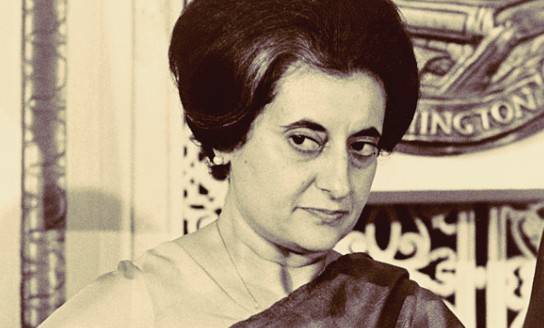Indira Gandhi, born on November 19, 1917, in Allahabad, India, was a remarkable leader and the first female Prime Minister of India. Her political career spanned over four decades, during which she left an indelible mark on the country’s history. Indira Gandhi’s leadership, resilience, and political acumen earned her the title of the “Iron Lady of India.”
As the daughter of India’s first Prime Minister, Jawaharlal Nehru, Indira Gandhi was immersed in politics from an early age. Her father’s influence and her own determination shaped her into a formidable political figure. She joined the Indian National Congress party and quickly rose through the ranks, serving in various positions before assuming the role of Prime Minister in 1966.
During her tenure as Prime Minister, Indira Gandhi implemented numerous policies and reforms that aimed to strengthen India’s economy and uplift the poor and marginalized sections of society. She introduced initiatives such as the Green Revolution, which transformed India from a food-deficient nation to one with self-sufficiency in agricultural production. Her commitment to empowering the impoverished led to the nationalization of banks and the creation of employment programs.
Indira Gandhi’s leadership, however, was not without controversy. In 1975, she declared a state of emergency, suspending civil liberties and imprisoning political opponents. This decision attracted international criticism but was perceived by some as a necessary step to maintain political stability and address the growing social unrest.
Gandhi’s unwavering determination and strong leadership were tested during the Indo-Pakistani War of 1971, which resulted in the creation of Bangladesh. Her decisive actions in supporting the independence movement and ensuring the liberation of East Pakistan showcased her strategic prowess and commitment to protecting India’s interests.
Tragically, Indira Gandhi’s life was cut short on October 31, 1984, when she was assassinated by her own bodyguards in retaliation for the military operation she ordered against Sikh extremists. Her death sent shockwaves throughout the nation, leading to a period of unrest and communal violence.
Indira Gandhi’s legacy as a leader and her contributions to India’s growth are undeniable. She was a strong advocate for women’s rights, education, and social justice. Her tenure as Prime Minister left an indelible impact on the political landscape of India and inspired future generations of women leaders.
In conclusion, Indira Gandhi’s political career and leadership style solidified her as one of the most influential figures in Indian history. Her determination, vision, and commitment to social justice continue to inspire leaders worldwide. Indira Gandhi’s legacy as the Iron Lady of India remains an enduring symbol of strength and resilience in the face of adversity.
newshub




Recent Comments